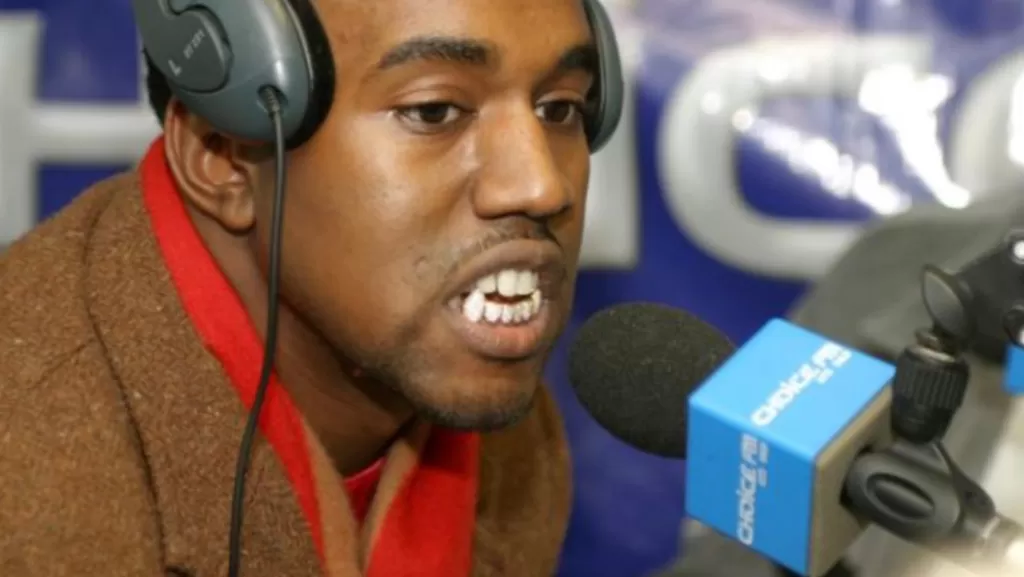Kanye West’s Shocking Confession About Childhood Sparks Controversy and Concern

In a move that has left fans, critics, and the public reeling, Kanye West, now known as Ye, made a deeply disturbing and controversial confession on social media on April 21, 2025, alleging that he engaged in incestuous sexual acts with a male cousin during his childhood. The revelation, shared in a post on X, has ignited a firestorm of reactions, ranging from shock and sympathy to skepticism and outrage, while raising serious questions about West’s mental health, the ethics of such public disclosures, and the potential motivations behind his claims.
The Confession and Its Context
In the X post, West claimed that the sexual encounters with his cousin began in childhood and continued until he was 14 years old, triggered by exposure to adult magazines, some of which he alleged belonged to his late mother, Donda West. He tied these experiences directly to his new song titled “Cousins,” which he said was inspired by this traumatic period of his life. The song’s explicit lyrics, including lines like “I gave my cousin h**d” and “I told my cousin not to tell nobody,” leave little to the imagination, while the accompanying music video, featuring provocative imagery, has further amplified the controversy.
West went on to allege that his cousin, whom he did not name, was later incarcerated for murdering a pregnant woman. He expressed guilt over showing his cousin the adult magazines, suggesting that their shared experiences may have contributed to his cousin’s later actions. The post also included a broader reflection on West’s behavior, with the artist claiming that his childhood trauma explains why he “acts out” in his personal and public life.
The confession comes amid a tumultuous period for West, who has faced ongoing scrutiny for his erratic behavior, including recent rants about custody disputes with ex-wife Kim Kardashian and antisemitic remarks that he admitted have impacted his access to his children. Just days after the post, West was photographed with his wife, Bianca Censori, suggesting a united front despite the mounting backlash.
Public Reaction: Support, Skepticism, and Concern
The revelation has elicited a wide range of responses from the public, celebrities, and social media users. Rapper Ferg was among those who expressed support, suggesting that West’s willingness to share such a personal and painful story could lead to healing for himself and others. “This is brave,” Ferg wrote on X. “Trauma needs air to heal. Ye’s opening a door for others to speak.” Similarly, Boosie Badazz voiced sympathy, acknowledging the trauma West described but noting that the artist “don’t sound right in the head.” Boosie’s comment reflects a broader concern among some observers that West’s mental health may be deteriorating, a topic that has surfaced repeatedly in recent years amid his public struggles with bipolar disorder.
On X, reactions were polarized. Some users praised West’s courage, arguing that discussing childhood trauma, particularly in the context of sexual abuse, could help destigmatize such experiences. “If this is true, it’s heartbreaking, and Ye speaking out could help others,” one user wrote. Others, however, were skeptical, questioning whether the confession was genuine or a calculated move to generate buzz for his new music. “Kanye’s been pulling stunts for years,” another user posted. “This feels like marketing dressed up as trauma.” Some even speculated that the claims could be exaggerated or fabricated, pointing to the lack of corroborating evidence about the cousin’s identity or the alleged crime.
The absence of official records confirming the cousin’s incarceration or the murder charge has fueled further debate. Without concrete details, some have accused West of exploiting sensitive topics for attention, while others argue that demanding proof of such personal trauma is unfair and invasive.
The Song and Its Implications
The release of “Cousins” has added another layer of complexity to the controversy. The song’s explicit lyrics and the music video’s provocative imagery have drawn criticism for potentially sensationalizing a serious topic. Critics argue that West’s decision to turn his alleged trauma into a commercial product raises ethical questions about the boundaries between art, personal experience, and exploitation. Supporters, however, contend that music has long been a medium for processing pain, and West’s raw honesty should be seen as an artistic expression rather than a publicity stunt.
The song’s release also coincides with West’s ongoing efforts to maintain relevance in an ever-evolving music industry. His recent projects, including the Vultures series with Ty Dolla $ign, have received mixed reviews, and some observers speculate that “Cousins” may be an attempt to reclaim the spotlight through shock value. Whether the song will resonate with audiences or further alienate them remains to be seen.
Mental Health and Public Persona
West’s confession has reignited discussions about his mental health, a topic that has been a recurring theme in his career. The artist has been open about his bipolar disorder diagnosis, and his behavior in recent years—marked by erratic social media posts, public outbursts, and controversial statements—has prompted concern from fans and mental health professionals alike. The explicit nature of his latest revelation, combined with its timing amid personal and professional challenges, has led some to question whether West is in a stable state of mind.
In his X post, West himself acknowledged the connection between his childhood experiences and his current behavior, suggesting that his “acting out” is a manifestation of unresolved trauma. This admission has prompted calls for compassion from some quarters, with advocates arguing that West’s struggles highlight the long-term impact of childhood abuse and the need for mental health support. Others, however, argue that his platform and influence come with a responsibility to handle such disclosures with care, particularly given the potential impact on his family, including his children and his cousin’s relatives.
Broader Questions and Ethical Dilemmas
The controversy surrounding West’s confession raises broader questions about the ethics of public disclosures, particularly when they involve sensitive topics like childhood sexual abuse and incest. While some argue that West’s openness could encourage others to speak out about their own experiences, others contend that the public nature of his confession—shared on a platform as volatile as X—risks trivializing the issue and inviting judgment rather than understanding.
The involvement of West’s late mother, Donda, in the narrative has also sparked discomfort. By alleging that some of the adult magazines belonged to her, West has drawn his mother, who passed away in 2007, into a deeply personal and controversial story, prompting criticism from some who feel he is unfairly implicating her memory.
Additionally, the lack of clarity about the cousin’s identity and the alleged crime raises questions about the potential impact on others. If West’s claims are true, his public disclosure could have far-reaching consequences for his cousin’s family and the victims of the alleged murder. If the claims are exaggerated or fabricated, they risk undermining the credibility of survivors who share their stories.
What’s Next for Kanye West?
As the dust settles on this latest controversy, the question remains: what’s next for Kanye West? The artist has long thrived on pushing boundaries, both in his music and his public persona, but his recent actions suggest a deepening divide between his supporters and detractors. For some, his confession is a courageous step toward healing and authenticity; for others, it’s a troubling sign of a man spiraling under the weight of fame, trauma, and mental health challenges.
West’s ability to navigate the fallout from this revelation will likely depend on several factors: the public’s reception of “Cousins,” the response from his inner circle, and his willingness to seek support for his mental health. In the meantime, the controversy has once again placed West at the center of a cultural firestorm, forcing society to grapple with uncomfortable questions about trauma, accountability, and the line between art and exploitation.
For now, the world is watching—and waiting—to see what Kanye West does next.







